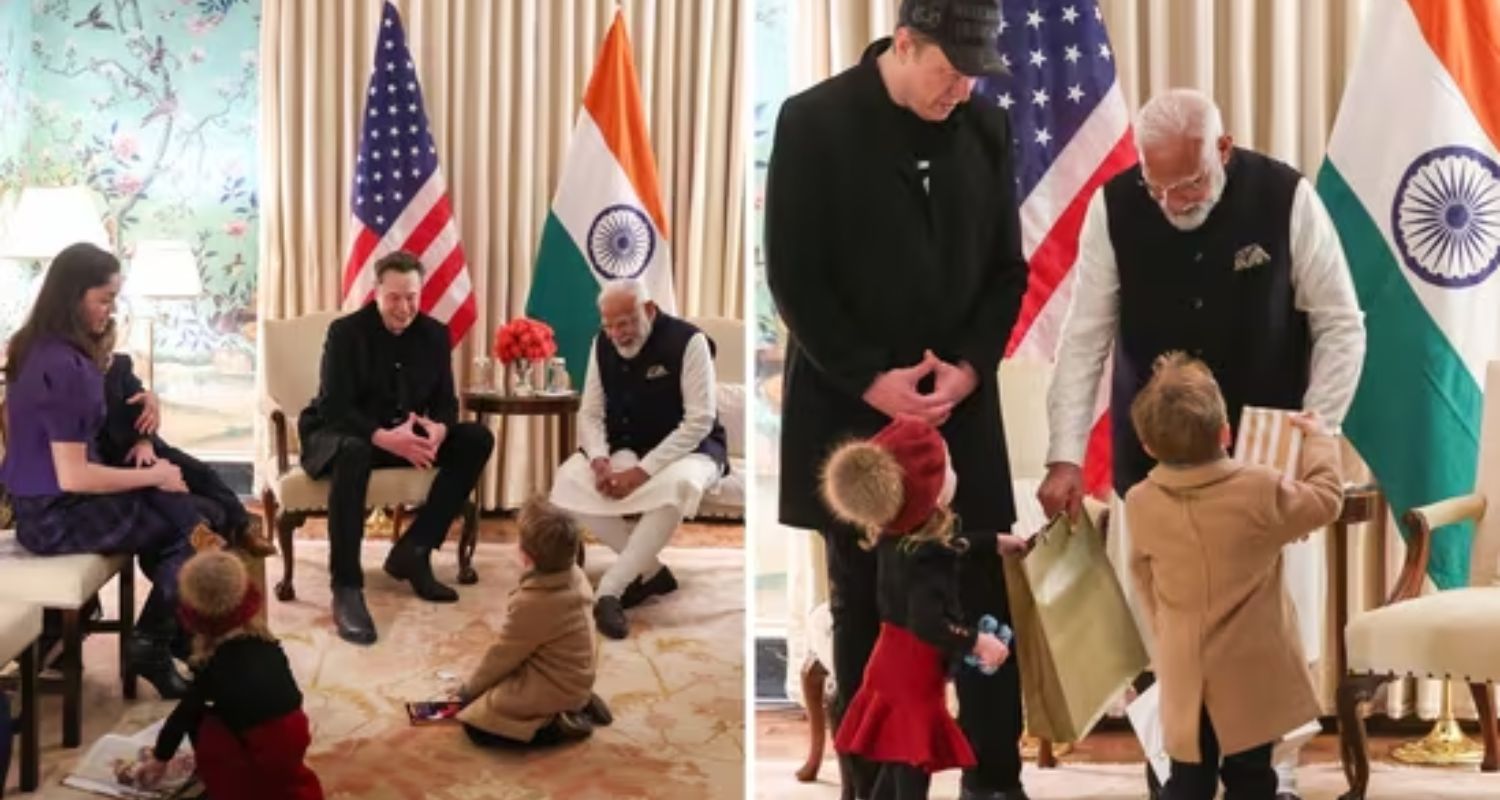Prime Minister Narendra Modi’s recent meeting with SpaceX CEO Elon Musk has generated significant attention, particularly regarding Musk's aspirations to grow his business ventures in India.
The meeting took place during Mr. Modi’s visit to the United States, where he also met with President Donald Trump. The discussion between Modi and Musk covered a wide range of topics, including space exploration, mobility, technology, innovation, and sustainable development.
Mr. Modi shared highlights of their meeting on social media platform X, marking another important interaction between the two, following their previous encounter in New York in 2023.
During that meeting, Musk had expressed optimism about Tesla’s entry into the Indian market, confidently stating, "I'm confident that Tesla will be in India... as soon as humanly possible."

Key attendees and diplomatic engagement
During the meeting, Elon Musk was accompanied by his three young children, while Prime Minister Modi was joined by several key members of his team, including External Affairs Minister S. Jaishankar and National Security Adviser Ajit Doval. After the meeting, President Trump commented on the gathering, suggesting that Musk’s interest in expanding his business operations into India was likely a significant part of the discussion.
Trump remarked, "I would imagine he met, possibly, because you know he's running a company."
According to India’s foreign ministry, the two leaders focused on strengthening ties between India and the United States in key areas such as innovation, space exploration, artificial intelligence (AI), and sustainable development. They also explored topics like entrepreneurship and good governance, emphasising collaboration between the two nations in these crucial sectors.
Starlink and regulatory challenges
One of Musk’s long-standing ambitions for India is the introduction of his Starlink satellite internet service. Musk, a known admirer of PM Modi, has been eager to bring Starlink’s broadband services to India. However, the project has faced significant hurdles due to regulatory challenges, security concerns, and opposition from domestic telecom giants, particularly Mukesh Ambani’s Reliance Jio.
In November 2024, India’s telecom minister Jyotiraditya Scindia pointed out that Starlink had not yet met the country’s security norms, and a license for satellite communications services would only be granted once these requirements were fulfilled.
While Musk has criticised India’s policy of auctioning spectrum for satellite services, the government has recently made a policy shift, opting to assign satellite spectrum directly, which could pave the way for Starlink's entry.
India's satellite broadband market
India’s satellite broadband market is highly competitive, with Reliance Jio and at least five other companies dominating the sector. Currently, 6,900 active Starlink satellites orbit the Earth, providing low-latency broadband to around 4.6 million people.
However, Musk’s high-cost pricing model for Starlink may face challenges in a market where India boasts some of the cheapest mobile data rates globally.
Despite this, a significant portion—at least 40%—of India’s population still lacks access to the internet, which presents an opportunity for Starlink to expand.
Also read: PM Modi is a much 'tougher' negotiator than me, says President Trump
Tesla’s struggles and opportunities in India
As for Tesla, the company has been eyeing entry into the Indian automobile market, which is the largest in the world. However, Tesla has encountered challenges due to high import duties on vehicles, compounded by the fact that electric vehicle (EV) sales in India make up only about 2 per cent of total car sales.
Despite this, the Indian government aims to increase that figure to 30 per cent by 2030, offering significant potential for growth in the electric vehicle sector.
In response to these challenges, the Indian government has introduced new policies, including the extension of concessional tariffs for fully imported electric vehicles manufactured by foreign carmakers who commit to local production.
This policy shift has made India a more attractive destination for Tesla, with the company actively working on site selection for its future operations in the country.
Also Read: 'I will leave Bangladesh to PM Modi', quips Trump on crisis-hit nation
Tesla’s Potential impact in India
The entry of Tesla into the Indian market is expected to have numerous benefits, including providing Indian consumers with access to advanced electric vehicles and contributing to the development of the country’s electric vehicle industry.
The arrival of Tesla in India will also likely create job opportunities and stimulate further growth in sustainable technology sectors.
As both Musk’s companies, SpaceX and Tesla, look to expand their footprint in India, the discussions with Prime Minister Modi reflect a promising future for collaboration between India and the U.S. in technology, business, and innovation.
Also Read: PM Modi, Prez Trump meet, announce ambitious defence, energy plans



